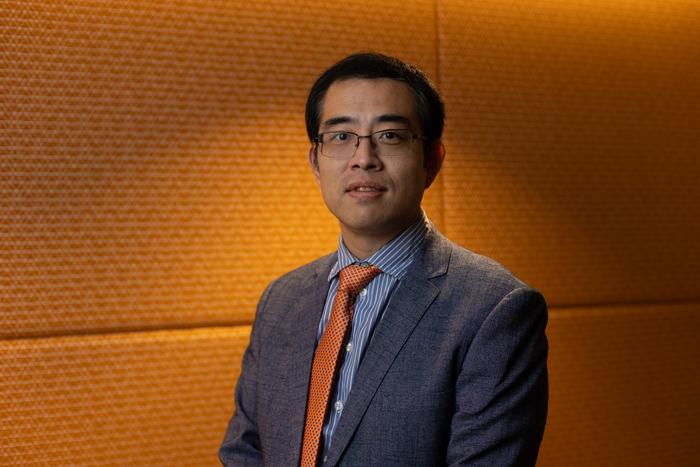A three-year, $3.4 million grant to investigate how Alzheimer’s disease is connected to multiple chronic diseases has been awarded to UTHealth Houston researchers by the National Institute on Aging, part of the National Institutes of Health.

Credit: Rogelio Castro/UTHealth Houston
A three-year, $3.4 million grant to investigate how Alzheimer’s disease is connected to multiple chronic diseases has been awarded to UTHealth Houston researchers by the National Institute on Aging, part of the National Institutes of Health.
To study this, a team led by Xiaoqian Jiang, PhD, principal investigator and professor and chair in the Department of Health Data Science and Artificial Intelligence with McWilliams School of Biomedical Informatics at UTHealth Houston, will build risk trajectory maps for patients using clinical data and electronic health records. Specifically, they will develop electronic health records with an application interface pathway that allows different data systems to communicate the exchange of health data across hospitals and clinics.
“Our focus is on prevention. If we have a better grasp of the patients’ conditions, then we can map their risk to visualize if they are following a certain cognitive degradation pathway. Intervention and prevention efforts can start earlier for the patient,” said Jiang, the Christopher Sarofim Family Professor in Biomedical Informatics and Bioengineering. When a patient’s medical history is stored in electronic health records, it is oftentimes scattered across different systems and platforms, making it difficult for doctors to piece together a full picture of the patient’s health. This results in missed opportunities to further understand how Alzheimer’s disease is connected to other ongoing health problems such as hypertension and diabetes, two chronic conditions that typically speed up the onset of Alzheimer’s disease.
As part of the study, researchers will pull real-time patient information located in electronic health records from nearly 1,000 participants in a University of South Florida-led interventional trial called ACTIVE MIND, which is studying how cognitive training can help prevent dementia.
Most electronic health record systems in the United States follow the broadly-used Fast Healthcare Interoperability Resources (FHIR) standardization health data framework, which defines a set of standards for the exchange, integration, and sharing of health care information electronically to make it easier for different health care systems and applications to communicate and share data effectively.
Utilizing FHIR, Jiang’s research team will build patient profiles and attach previous medical and treatment histories to map patients’ risk trajectory of developing Alzheimer’s disease through machine learning. The team plans to follow patients for seven years.
“I am hoping we will build a digital patient profile over the trajectory of more than a decade. Alzheimer’s disease is gradual, and there are multiple evident sources that we can use to profile the degree of cognitive function changes influenced by multiple chronic conditions in different subpopulations,” Jiang said.
Media Inquiries: 713-500-3030




